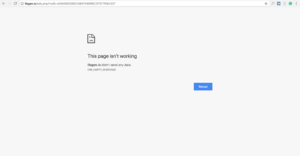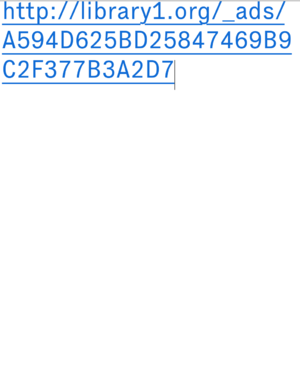User:Alexander Roidl/resesarch
Interfacing the law
IdeasIdeasIdeas
- Bringing the shadow library to the public space
- From shadow library to library??
- Posters with urls? Book with index / public search engine?
- Broken links in Libgen
- As the article shows: Theses domains / links are made to break
- Site can simply be mirrored and new domains are created
- more temporarly constucted
- also changing to .onion -> moving to the darknet
- Files and how they connect
- Where have files been? (Stamps on them)
- Where are they copied?
- how do you link to them?
- What is a digital file?
- PDF file format
- How are files linked? online and offline?
- Shared Library
- complete structure is online
- but files can be linked manually
- to local files (or on localhost server)
http://www.ace.net.nz/tech/TechFileFormat.html all fileformats
Defining what I want to do.
For my research I want to look into links and how they are important for keeping shadow libraries alive. I want to specifically find out how these links for example in libgen are constructed and how all these links are made to break. (to later set it up again) The idea of mirrors is very connected to that idea. LINKS ARE MEANT TO BREAK This is how the shadow library hides. When one domain is banned it is moved to another one. It's part of the hide and seek game.
Editable Library
- online library where you can read books in browser
- you can comment / edit the book and the edits will stay there and the edited book goes back into the library
- Prerequirement: PDF viewer & editor online
- contributors have files on their own computer but stream it to a online–point
- offline changes will influence the platform as well
- you stay »owner« of you files
- share books automatically when on same network
get all the covers
- view all covers on one page
- track how fast they break
Resources
https://torrentfreak.com/sci-hub-and-libgen-resurface-after-being-shut-down-151121/
About Sci-Hub and LibGen being shut down. Recovered activities through different domains.
https://www.nature.com/news/pirate-research-paper-sites-play-hide-and-seek-with-publishers-1.18876
Hide and seek with the law, by changing domains and moving to other servers.
http://blog.zomdir.com/2017/10/the-half-life-of-link-is-two-year.html
About the fragility of links. Their lifespan is not longer than 2 years.
How links break and what can be done about it.
https://www.w3.org/Provider/Style/URI
Broken Links: The Ephemeral Nature of Educational
WWW Hyperlinks by John Markwell1 3 and David W. Brooks2
The use of distributed (Internet) resources to enhance both traditional and distance education has caused much excitement in the science education community. However, one of the difficulties with relying on such freely available distributed resources has been the lack of certainty that the resources will be available for students next month, next semester, or next year. We have recently been involved in the development of three graduate-level biochemistry courses designed for high school teachers. Development of these courses relied heavily upon distributed science education resources. As a consequence, they represented a set of authentic science education resources that could be monitored over time to determine their rate of extinction. In total, the three courses contained 515 nonredundant URLs representing either scientific content of science education pedagogy. These have been monitored on a monthly basis during the 14 months since the creation of the courses (August 2000). During this period 85 (16.5%) of the URLs have ceased to function or had their content changed. The most attrition was seen in URLs with the "edu," "com," and "org" domain names, in which 17.5, 16.4, and 11% have already become inaccessible.
Radical Tactics
of the Offline
Library
– Henry Warwick
After explaining the simplicity of sharing files today (TB of memory is cheap and affordable) he outlines the history of offline filesharing. From shared floppy disks to shared hard drives. The following chapter includes a list of popular file / text sharing platforms and explains their role. (including artistic research on it)
http://io.acad.athabascau.ca/~grizzlie/Comp607/watermarkingAttack.htm
About watermarking and how it’s being attacked.
Search User Interface Design
Max L. Wilson
How the search is constructed and used.
https://www.jstor.org/stable/pdf/3085402.pdf?refreqid=excelsior%3Ab5864ae6c74726069f15166e299f56e6
Reflecting the project
- infrastructure
- considering multiple in- and outputs (csv, api, db, folders)
- rqlite ~
- consensus system (Social structures in protocols / software)
- question: what's the difference to a centralized db?
- writing software together
- not too many conflicts
- not so much time to reflect inbetween
- experiment of trying the things we found out (tinc, rqlite, flask)
- pretty straight forward
- plugging into shadow libraries issues
- facing the real world -> no pfds on server


